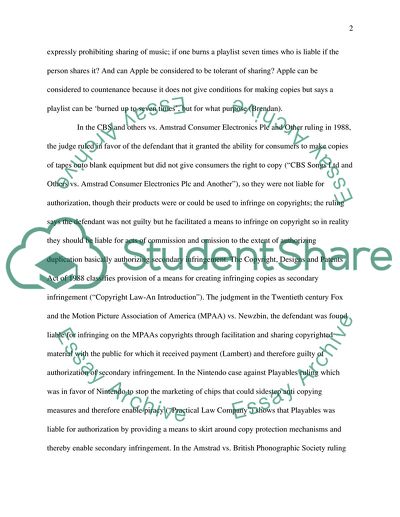Cite this document
(“Authorizing Infringement and Secondary Infringement Essay”, n.d.)
Retrieved from https://studentshare.org/law/1587611-authorising-infringement-and-secondary-infringement-see-the-order-instructions-for-essay-question
Retrieved from https://studentshare.org/law/1587611-authorising-infringement-and-secondary-infringement-see-the-order-instructions-for-essay-question
(Authorizing Infringement and Secondary Infringement Essay)
https://studentshare.org/law/1587611-authorising-infringement-and-secondary-infringement-see-the-order-instructions-for-essay-question.
https://studentshare.org/law/1587611-authorising-infringement-and-secondary-infringement-see-the-order-instructions-for-essay-question.
“Authorizing Infringement and Secondary Infringement Essay”, n.d. https://studentshare.org/law/1587611-authorising-infringement-and-secondary-infringement-see-the-order-instructions-for-essay-question.


